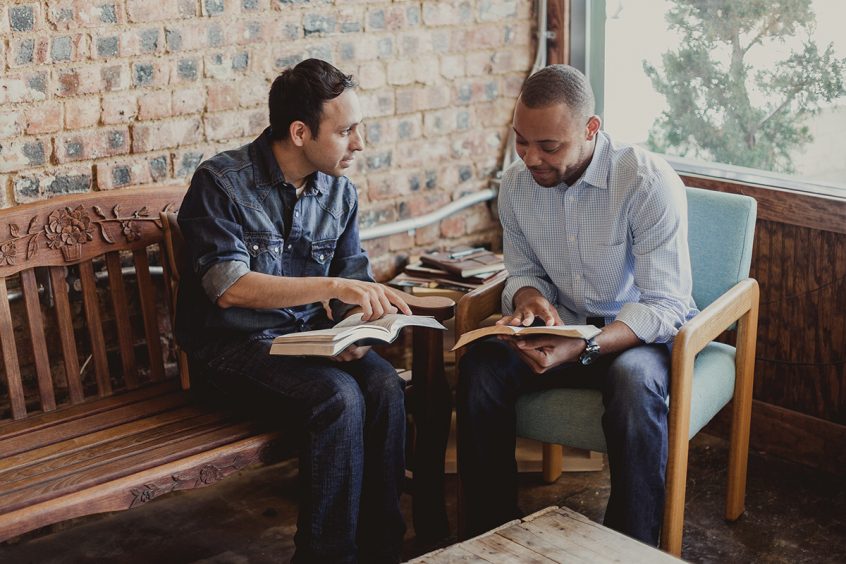Recently, I’ve been asked some questions about the differences between biblical counseling and traditional talk therapy. Both biblical counselors and therapists have caring and thoughtful conversations seeking to give insight into why people respond the way they do. And both methods want to help people understand how they could respond in healthier ways.
So what’s the difference?
Many Christians who practice traditional talk therapy allude to the fact they do “biblically-based counseling”, but unfortunately this can be misleading and frustrating for those seeking truly biblical counseling.
3 Distinctives of Truly Biblical Counseling
The Gospel is the good news that changes everything. Biblical Counselors agree with A.W. Tozer when he says that “What I believe about God is the most important thing about me.” What we believe about God shapes our responses to every area of life. How we respond to trials, temptations, and heartbreak are shaped most by our view of God. Biblical Counselors are called to make the gospel (the free offer of grace, mercy, and friendship with God) clear and practical. We truly believe this should be shared as the answer to the greatest need we all have. Sadly, the gospel doesn’t make it onto the agenda of tradition talk therapy on a regular basis, and this is a missed opportunity. Lasting heart change requires us to understand the gospel and how it impacts every area of life.
The Bible helps us understand how the Gospel changes everything. If the gospel really has the greatest ability to help us respond to every trial in life, then how do we understand how this plays out in various situations of life. How does the good news of the gospel shape our response to marriage problems, addictions, trauma experiences, and negative self feelings? The Bible serves to give us examples, both positive and negative, of choosing to live responding to God’s grace and with His Spirit empowering us to live differently. The theories of traditional talk therapy capture and describe the way that people normally respond to life in a fallen and broken world, however they don’t turn back to the cross and to the good news as the answer. Biblical counselors rely upon the Bible to more accurately describe what life is really like in a fallen world and how we can find hope.
The goal of counseling is to help people live a life that enjoys and honors God. Early on in any counseling process goals are set for the series of conversations that you will have together. In traditional talk therapy, the client determines with the therapist’s help what reasonable goals might be and a treatment plan is established to help move a client in that direction. Biblical counselors set goals in much the same way, but our focus is different. More than getting what we want, life is about honoring God. We are called to live in fellowship with God and to pursue our relationship with Him, like a deer thirsts for water. Both methods have the goal of alleviating negative consequences through better choices, but biblical counseling focuses more on the heart and one’s relationship with God.
If you desire counseling that helps your faith grow deeper and stronger, biblical counseling will resonate with you.
In the next article, I flesh out how these differences play out in real-world therapy situations. Traditional talk therapy and biblical counseling aren’t the same. While many sincere Christians pursue and practice traditional talk therapy, Biblical counseling has grown significantly over the past few decades because it is distinctly different.








4 Comments on “3 Differences Between Biblical Counseling and Traditional Talk Therapy”
Yes I do believe that Biblical counselling transform the person’s heart as he gets to have a relationship God as oppose to traditional counseling which may have effect only for a while but always
Even Freud discovered early in his career, just listening to someone while they talk, seems to relieve some of their symptoms and lighten their load for a while. Biblical counseling will entail input from the counselor because God’s authority must be established early on by the counselor and living by the wisdom of God’s word is critical. I would think a Godly counselor will be a good listener, as well as a good Biblical counselor, with regular input to the session from God’s word.
This article clearly displays the difference between changes that we can take into eternity–biblical counseling and changes that are only temporary at best, traditional talk therapy
Pingback: 3 More Differences Between Biblical Counseling and Traditional Talk Therapy | BiblicalCounselor.com